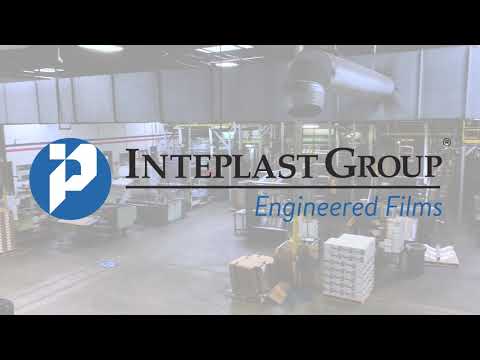
Having been with the company for just three months, IEF’s new Technical Expert Sumita Ranganathan is bringing her passion for environmental conscientiousness and sustainability to IEF.
We sat down with Sumita to learn what makes her so passionate about creating sustainable engineered films and where the industry is trending.
Q: Tell us a little bit about yourself and your work experience
Sumita Ranganathan: My basic training is as a chemist, I have a Masters in Polymer & Colloid Science and a PhD in Polymer Science & Engineering. I worked with DuPont Canada for 10 years and another 10 years at Sealed Air Corp., where I spent eight years in their food packaging division and two years in their medical packaging division. Before I joined IEF I worked with Sukano Polymers, a privately-owned master batch producer.
Q: What was it about IEF that made you want to become a part of the team?
SR: IEF felt like it would be a great place to have a say about what happens in R&D while also actively contributing to the direction and strategy of the company as a whole. In very large corporations, it’s hard to have a real say, as there is a lot of delegation and you don’t often get a chance to make the change you want to see. Small companies, on the other hand, might offer you a great deal of say, but they come with their own drawbacks. IEF feels like a place where I’ll be very involved in developing new formulations and with sustainability being a focus at every level. Along with my own passion for sustainability, this move just made sense.
Q: Speaking of sustainability, how can someone be passionate about sustainability and the environment while also working in the plastics industry?
SR: Plastics touch many aspects of our lives, from the simple plastic shopping bag to complex medical implants. It’s almost impossible to eliminate plastics from our life. However plastic waste is a global issue – from the plastic litter you see in your neighborhood to the massive gyres floating in our oceans. The industry that created these wonderful materials is also capable of solving the issue of plastic waste, and is actively involved in doing so. Having spent 20 years in the plastics industry, I feel that I have a responsibility on both a professional and personal level to mitigate this issue by exploring sustainable alternatives wherever possible.
Q: Which projects are you most excited about?
SR: There’s a lot going on at IEF. We are in the process of developing a strategy around sustainable films to incorporate post-industrial resin (PIR), post-consumer recycled (PCR) plastic, biobased and biodegradable materials. We are looking at incorporating more PCR plastic into our formulations. We are also looking into FDA-grade PCR and viable places to source that material, while identifying which of our formulations can use more of it.
We do currently have sustainable offerings — IEF Orlando has a film made with 91 percent post-industrial material and IEF Haremar produces a compostable film. We’re doing a lot of work to increase the breadth and strength of our portfolio to offer our customers more options.
Q: What are some of the hurdles that might make customers hesitate on changing their formulation?
SR: Price is most often the biggest hurdle. Most sustainable alternatives cost more than virgin resins and this is a huge challenge. Customers and consumers need to be educated on the global benefits of sustainability. The upcharge I feel should be shared across the value chain – everyone has to do their part in cleaning up our plastic waste and preventing it from getting into our water and land resources.
Aesthetics is the next hurdle. For example, a PCR-containing film may have a slight color or increased haze to it, but these are just optics. In my opinion, as long as the functionality of the film is maintained, customers and consumers should be accepting of it, especially when they know an effort to be sustainable has been made.
Q: That may be a hard sell to some customers, especially when packaging plays such an integral part in the marketing of a product.
SR: I think it’s all about education –I do see an increase in awareness these days. It’s like “organic foods” – a dull not-so-perfect fruit is a sign of it being organic, while a shiny perfect fruit is treated with pesticides and coated with wax to look perfect. In a similar way the consumer needs to realize that a crystal-clear film is probably made predominantly from virgin plastic and a slightly dull film is a sign of a sustainable option. As long as the functionality is maintained, a slight compromise in aesthetics should be okay. Sustainability can be used as a marketing tool. By educating the customer, they can learn buying a product using a more sustainable form of packaging carries real environmental benefits.
To learn more about how IEF can help yo uwith your engineered film needs, click here.
Published July 2019



